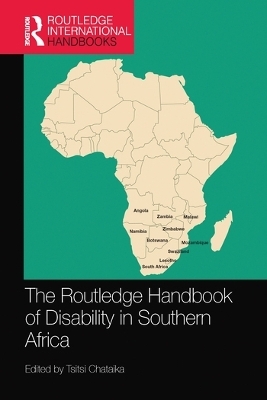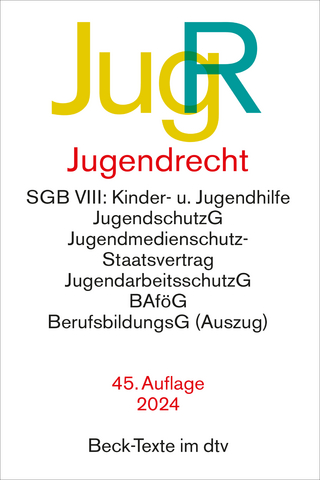
The Routledge Handbook of Disability in Southern Africa
Routledge (Verlag)
978-0-367-58059-9 (ISBN)
This comprehensive ground-breaking southern African-centred collection spans the breadth of disability research and practice. Reputable and emerging scholars, together with disability advocates adopt a critical and interdisciplinary stance to prove, challenge and shift commonly held social understanding of disability in traditional discourses, frontiers and practices in prominent areas such as inter/national development, disability studies, education, culture, health, religion, gender, sports, tourism, ICT, theatre, media , housing and legislation.
This handbook provides a body of interdisciplinary analyses suitable for the development of disability studies in southern Africa. Through drawing upon and introducing resources from several disciplines, theoretical perspectives and personal narratives from disability activists, it reflects on disability and sustainable development in southern Africa. It also addresses a clear need to bring together interdisciplinary perspectives and narratives on disability and sustainable development in ways that do not undermine disability politics advanced by disabled people across the world. The handbook further acknowledges and builds upon the huge body of literature that understands the social, cultural, educational, psychological, economic, historical and political facets of the exclusion of disabled people.
The handbook covers the following broad themes:
• Disability inclusion, ICT and sustainable development
• Access to education, from early childhood development up to higher education
• Disability, employment, entrepreneurship and community-based rehabilitation
• Religion, gender and parenthood
• Tourism, sports and accessibility
• Compelling narratives from disability activists on societal attitudes toward disability, media advocacy, accessible housing and social exclusion.
Thus, this much-awaited handbook provides students, academics, practitioners, development partners, policy makers and activists with an authoritative framework for critical thinking and debates that inform policy and practice in incomparable ways, with the view to promoting inclusive and sustainable development.
Tsitsi Chataika is the editor of this handbook and also a senior lecturer in inclusive education in the Department of Educational Foundations, University of Zimbabwe. She is an ardent supporter of disability rights. Chataika’s research interests allow her to understand how disability intersects with education, gender, religion, childhood studies, poverty, policy, development and postcolonial theory. Her goal is to promote inclusive sustainable development, hence influencing policy and practice. She conducts disability awareness and mainstreaming workshops in various African countries. Chataika has presented at various national and international platforms and she has also published widely in her areas of research interests.
Part 1: Disability Inclusion and Sustainable Development 1. Introduction: Critical Connections and Gaps in Disability and Development 2. Leave No One Behind: Disability Mainstreaming in Action 3. Reflections on the Development of the National Disability Mainstream Plan in Lesotho 4. Theatre for Development: Bringing Disabled Students’ Hidden Transcripts out of the Closet 5. Building Sustainable Communities: Why Inclusion Matters in the Post-Conflict Environment 6. Experiences of Disabled People in Using Information and Communication Technology in Mozambique Part 2: Access to Education 7. Personal Reflections of Disabled Women on Access to Early Childhood Education in Zimbabwe 8. Educating Deaf Children in Mainstream and Special Secondary School Settings: Inclusive Mirage or Reality? 9. Using the International Classification of Functioning, Disability and Health Model in Changing the Discourse of Disability to Promote Inclusive Education in Zambia 10. Examining the Effectiveness of the Special Class Model in Zimbabwe Part 3: Inclusion in Higher Education 11. When Rights are Discretionary: Policy and Practice of Support Provision for Disabled Students in Southern Africa 12. Access, Equality and Inclusion of Disabled Students within South African Further and Higher Educational Institutions Part 4: Disability, Employment, Entrepreneurship & CBR 13. Community-Based Rehabilitation for Inclusive Social Development in Southern Africa 14. Employment, Entrepreneurship and Sustainable Development Issues in Southern Africa 15. Enhancing Realistic Hopes and Aspirations towards Vocational Choices: Focus on Deaf Secondary Students in Zimbabwe Part 5: Religion, Gender and Parenthood 16. The ‘Unholy Trinity’ against Disabled People in Zimbabwe: Religion, Culture and the Bible 17. Addressing Disability and Gender in Education Development: Global Policies, Local Strategies 18. Socio-economic Barriers faced by Women with Disabilities in Zimbabwe 19. Disability, Intimacy and Parenthood: Deconstructing ‘Mutually Exclusive’ Constructs Part 6: Tourism, Sports and Accessibility 20. Disability and Tourism in Southern Africa: A Policy Analysis 21. State and Status of Wheelchair Basketball Facilities in Zimbabwe 22. Mobile Outreach Seating Clinics: Improving Access to Wheelchair and Support Services Part 7: Narratives from Disability Activists 23. A Citizen of Two Worlds 24. Disability Advocacy through Media: Action Power 25. Disability Advocacy in Action: Why I Built an Accessible House in Zimbabwe 26. The Security Guard who turned the Lawyer into A Disability Activist 27. ‘For I know the Plans that I have for you’: the Story of my Life 28. Concluding Remarks and Future Direction
| Erscheinungsdatum | 01.07.2020 |
|---|---|
| Verlagsort | London |
| Sprache | englisch |
| Maße | 174 x 246 mm |
| Gewicht | 453 g |
| Themenwelt | Sachbuch/Ratgeber ► Sport |
| Recht / Steuern ► Arbeits- / Sozialrecht ► Sozialrecht | |
| Recht / Steuern ► EU / Internationales Recht | |
| Sozialwissenschaften ► Soziologie | |
| ISBN-10 | 0-367-58059-4 / 0367580594 |
| ISBN-13 | 978-0-367-58059-9 / 9780367580599 |
| Zustand | Neuware |
| Informationen gemäß Produktsicherheitsverordnung (GPSR) | |
| Haben Sie eine Frage zum Produkt? |
aus dem Bereich


